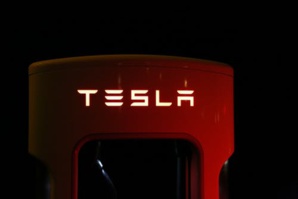Tesla is carrying out talks with CATL. The discussions have reached advance stage whereby the former is likely to use the latter’s batteries which doesn’t contain any cobalt, which happens to be the “most expensive metals” found in the batteries of EV. Tesla will be using these batteries in the cars manufactured in Chinese plant.
This adoption will mark the first time for the U.S. auto manufacturer to use “lithium iron phosphate” batteries in its EV lineup. This step comes as a measure to bring down manufacturing costs while overall EV sales in China have taken a hit. The above mentioned talks have been going on for a year now, while a person familiar with the matter, seeking anonymity, has informed that LEP batteries will turn out to be “cheaper than its existing batteries by a “double-digit percent”.
However, both the companies, “Contemporary Amperex Technology Co Ltd”, in short CATL, as well as Tesla refrained from commenting on the news. Usually, EV uses NCA, “nickel-cobalt-aluminum”, or NMC, “nickel-manganese-cobalt”, on passenger ones to yield “higher energy density”. CATL has been working to boost the safety and density of its LFP batteries for which it has turned to “cell-to-pack technology”.
Even though it remains to be understood the extend of Tesla’s use of LEP batteries, while the auto manufacturer will not altogether stop using the “current NCA batteries”.According to Reuters:
“Tesla has been ramping up production of its Model 3 cars at its newly built $2 billion Shanghai plant and cutting prices to win market share from conventional premium automakers such as Germany’s BMW AG (BMWG.DE) and Daimler AG (DAIGn.DE)”.
In last December, the said factory started to deliver cars which cuts down on shipping and tariff charges for imported models. Currently, Tesla seeks to get “regulatory approval” for creating “longer-range Model 3 cars at the plant”. Coronavirus outbreak and the “Lunar New Year holiday” has affected the January car sales in China.
The introduction of LFP batteries will help C.E.O Elon Musk to keep his 2018 promise of cutting down cost on cobalt batteries, whereby bringing down the cost from nearly “$33,500 a tonne” to “almost nothing”. Probably, in April 2020, Tesla has plans of hosting a “battery event” wherein the company will “share its future battery strategy and technology”, this information was announced by Musk in January’s earnings conference.
References:
reuters.com
This adoption will mark the first time for the U.S. auto manufacturer to use “lithium iron phosphate” batteries in its EV lineup. This step comes as a measure to bring down manufacturing costs while overall EV sales in China have taken a hit. The above mentioned talks have been going on for a year now, while a person familiar with the matter, seeking anonymity, has informed that LEP batteries will turn out to be “cheaper than its existing batteries by a “double-digit percent”.
However, both the companies, “Contemporary Amperex Technology Co Ltd”, in short CATL, as well as Tesla refrained from commenting on the news. Usually, EV uses NCA, “nickel-cobalt-aluminum”, or NMC, “nickel-manganese-cobalt”, on passenger ones to yield “higher energy density”. CATL has been working to boost the safety and density of its LFP batteries for which it has turned to “cell-to-pack technology”.
Even though it remains to be understood the extend of Tesla’s use of LEP batteries, while the auto manufacturer will not altogether stop using the “current NCA batteries”.According to Reuters:
“Tesla has been ramping up production of its Model 3 cars at its newly built $2 billion Shanghai plant and cutting prices to win market share from conventional premium automakers such as Germany’s BMW AG (BMWG.DE) and Daimler AG (DAIGn.DE)”.
In last December, the said factory started to deliver cars which cuts down on shipping and tariff charges for imported models. Currently, Tesla seeks to get “regulatory approval” for creating “longer-range Model 3 cars at the plant”. Coronavirus outbreak and the “Lunar New Year holiday” has affected the January car sales in China.
The introduction of LFP batteries will help C.E.O Elon Musk to keep his 2018 promise of cutting down cost on cobalt batteries, whereby bringing down the cost from nearly “$33,500 a tonne” to “almost nothing”. Probably, in April 2020, Tesla has plans of hosting a “battery event” wherein the company will “share its future battery strategy and technology”, this information was announced by Musk in January’s earnings conference.
References:
reuters.com






